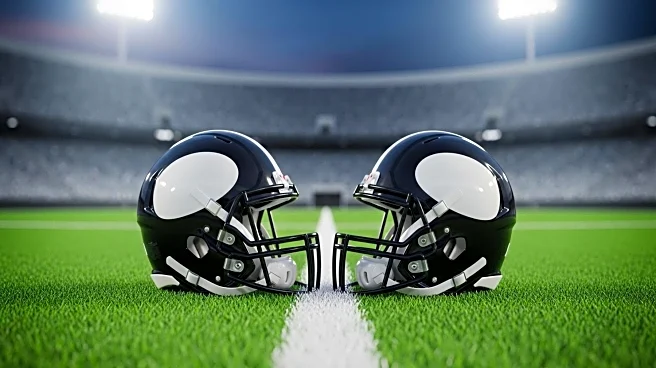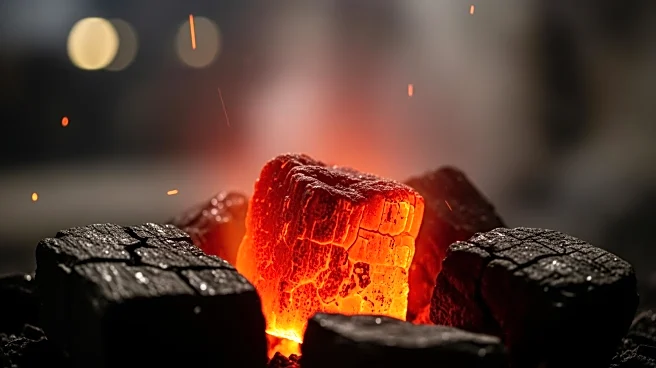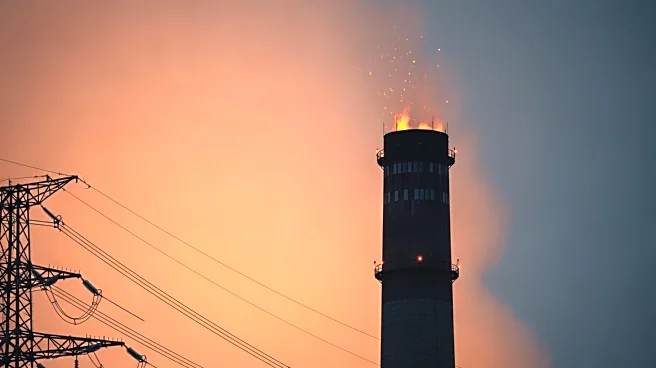What's Happening?
Laurin Talese performed 'Lift Every Voice and Sing,' known as the Black national anthem, before the NFL season opener between the Philadelphia Eagles and Dallas Cowboys. The song has been included in NFL events since the summer of unrest following George Floyd's death. Talese's performance received a standing ovation from the audience at Lincoln Financial Field. The inclusion of the anthem has been a point of contention among fans, with social media reactions ranging from support to criticism. The NFL has allowed teams to feature the song at various events, including season openers and Super Bowls.
Why It's Important?
The performance of the Black national anthem highlights ongoing discussions about race and representation in sports. The NFL's decision to include the anthem reflects its response to social justice movements and the demand for greater inclusivity. This move may influence public perception of the league and its commitment to addressing racial issues. Fans and stakeholders are divided, with some viewing it as a positive step towards equality, while others see it as unnecessary or divisive. The reactions could impact the NFL's future policies and its relationship with diverse fan bases.
What's Next?
The NFL may continue to feature the Black national anthem in future games, potentially expanding its presence in other sports events. Stakeholders, including teams and sponsors, might evaluate the impact of such performances on their brand image and fan engagement. The league could face pressure to address differing opinions and find a balance that respects diverse perspectives. Further discussions on racial equality in sports are likely, influencing how leagues and teams approach inclusivity and representation.
Beyond the Headlines
The inclusion of the Black national anthem raises questions about the role of sports in societal change and the responsibilities of major leagues in promoting social justice. It may encourage other sports organizations to consider similar actions, fostering broader cultural shifts. The debate also touches on the intersection of sports, politics, and identity, challenging traditional views and prompting deeper reflection on the values represented in public events.








